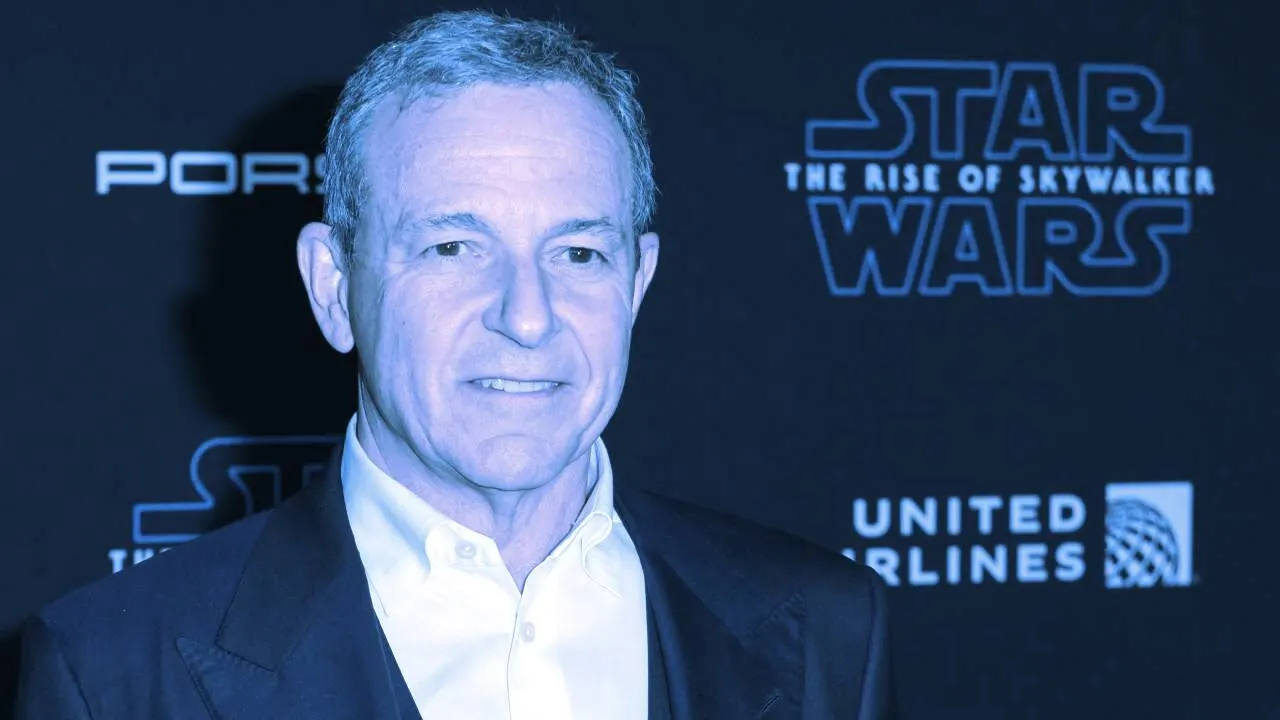Bob Iger, former CEO of Disney, hinted at the company's metaverse ambitions while predicting an "explosion" in the non-fungible token (NFT) space.
Speaking to New York Times journalist Kara Swisher on the Sway podcast, Iger likened NFTs to the baseball cards he collected as a child.
"We forget, in our generation, that things don’t have to be physical," he said. "They can be digital, and they have meaning to people. And as long as that meaning can be essentially substantiated in a blockchain, I think you’re going to see an explosion of things being created, traded, collected in NFTs."
Iger pointed out that Disney has already dipped its toe into the NFT space, noting that the company "has done some licensing" of its IP as NFTs; the company partnered with digital collectibles platform Veve to launch NFTs featuring popular Disney and Marvel characters.
"When you think about all the copyright and trademarks, characters Disney has, and the NFT possibilities, they’re extraordinary," Iger said.
Unsurprisingly, given Disney's iron hold over its copyright, Iger was concerned about the level of IP infringement in the NFT space. "I went on a platform called OpenSea, which is a platform to buy and trade NFTs," Iger said, "And I was amazed at all the Disney stuff that was there, and most of it was pirated. Most of it was not created by people who had the right to create them."
Disney and the metaverse
Iger also hinted at his former employer's ambitions in the metaverse space, while warning of the risks of "toxic behavior" in the next-generation Internet.
"There’s been enough said and criticized about toxic behavior in Internet 2.0— Twitter, Facebook, you name it," Iger said, arguing that in the more "compelling and immersive" environment of the metaverse's persistent virtual world, worse kinds of toxic behavior could happen.
"I think something Disney is going to have to consider as it talks about creating a metaverse for themselves is moderating and monitoring behavior," Iger added, noting that he's "thinking about telling my kids that they should start creating technology tools to moderate behavior in Internet 3.0."
Despite his concerns over the risks posed by the metaverse, Iger was optimistic about its possibilities, arguing that the next generation of the Internet "will definitely be more compelling in experience, certainly more immersive, more dimensional."
"I don’t think there’ll be one metaverse," he added. "I talk about democratization. It’ll be dispersed. You may have an avatar, but you’ll go all over the place. And I think that it’s likely to be developed into something real as an experience."
In recent months, a long list of companies has invested in the metaverse. The gold rush arguably started with Facebook's rebranding to Meta, part of CEO Mark Zuckerberg's ambition to reposition the company as a "metaverse first" business.
Since then, Microsoft has framed its $69 billion acquisition of Activision Blizzard as an opportunity to develop "building blocks" for the metaverse, while everyone from Warner Music to Samsung has revealed plans for in-metaverse events. Even Walmart has filed metaverse-related trademark applications relating to crypto and NFTs.

